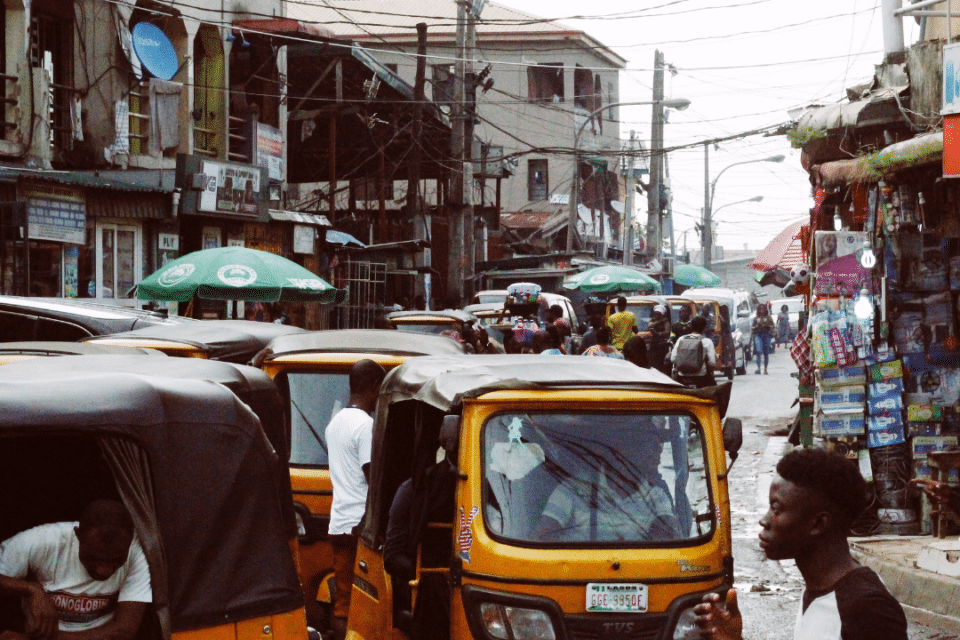Help our local partners realise their vision of hope for their communities

After the death of the Boko Haram leader Abubakar Shekau in May, many Boko Haram members are defecting, leaving questions about the future of this terror group in Nigeria.
The deep-rooted tensions of Nigeria have long lingered since the colonial era and still persist today with a sharp divide between the North and South regions. The South’s prosperity and the North’s emphasis on tradition have allowed antagonism and poverty to develop and consequently the influence of violent terror groups. Since the death of the leader of the most notorious terror group Boko Haram and the impact of the rise of the Taliban in Afghanistan, the future of Nigeria is uncertain. How Boko Haram emerged and what its future will be is deeply connected to the disparity between the North and South and the influence of other international terror groups.
Although Nigeria has the highest GDP in Africa, it still experiences mass poverty and violence, especially in the Northern region. The contrast between living standards in the urban and rural population in Nigeria is very distinct. 49% of women in rural areas are married by the time they are 18 whereas this figure is only 20% in urban areas. Alongside this, 43% of girls complete their secondary school educations in rural areas compared with 77% in urban areas, thus drastically hindering the possible development in these regions.[1] The divide traces back to the Colonial era, when the two areas were amalgamated to form Nigeria. The Northern region was less interfered with in order to co-operate with the military leaders, while the reverse occurred in the South and allowed it to prosper. When calls for independence were made in 1956, the North objected due to fear of domination from the South. These tensions have not diminished with issues still being debated today, such as the #EndSARS movement which the North objects to due to security concerns and the South supports.[2] It is argued that there is a lack of identification within the country with the South and the North feeling so separated has allowed a psychological distance to form as an outcome of the vast cultural differences.[3] This physical as well as social detachment has led to an isolation of the North as it spurns the Western ways of the South, thus leading to higher poverty levels and a breeding ground for terror groups, most notably Boko Haram.
Boko Haram, which means ‘Western Education is forbidden,’ has led an aggressive regime in the North West of Africa, wreaking havoc and killing many in the name of overthrowing the government to create an Islamic State in Nigeria. They were formed in 2002 but have been using violent methods of bombing, gun attacks and abductions to further their control since 2009. 30,000 people are estimated to have died due to their regime, especially Christians, resulting in a government-led security crackdown in the North East.
However, in 2016 part of the group split off to form Islamic State’s West African Province (ISWAP) which originally worked alongside Boko Haram until recently when they became rivals.[4] In May 2021, Boko Haram’s leader killed himself with an explosive in a clash against ISWAP when his rivals were closing in. His death has resulted in former militants defecting and handing themselves into rehabilitation camps, now advocating for peace. Nigeria’s military have claimed that over a thousand Boko Haram fighters have surrendered themselves to the government. The Nigerian government has implemented a scheme to re-educate those who have left the group, to much controversy as this is seen to be overly generous to the terrorists. It is unclear whether these defections will create lasting change in Nigeria, as similar defections occurred in 2019 to little prevail.[5] The Nigerian military has boasted of these defections being a result of their regime, however analysts argue it has much more to do with the rise of ISWAP. Although some militants have now joined ISWAP, there is still a hope of peace but with ISWAP rising and their connections to the Islamic State group this is uncertain.
The ramifications of the rise of Taliban must also be considered with regard to future terrorism in Nigeria, with fears that Nigeria could share the same fate as Afghanistan. The empowerment of extremism is now seen as a serious threat. 75,000 Taliban militants triumphed over 300,000 Afghan soldiers, highlighting how essential the motivation for radical ideology is when fighting. This has not gone unnoticed by the Nigerian government as the President Buhari claimed the ‘war on terror’ is not over. He called for investment in Africa rather than troops as the only sustainable method to create lasting change.[6] However, his opponents, specifically former aide Reno Omokri, have again argued this insurgence is a reason to end the rehabilitation centres, claiming the situation to Afghanistan is very similar to Nigeria, with Boko Haram and the Taliban sharing similar ideologies. He fears that the rehabilitation camps could allow for Boko Haram to infiltrate the Nigerian security from within as was the case in Afghanistan[7].
Therefore, the fall of the Boko Haram leader has led to some timid hope, yet the rise of ISWAP and the Taliban allows for the further empowerment of extremist groups making the situation in Nigeria much more uncertain. Perhaps, if investment is made in the poorer areas the gap between the North and South will shrink and fewer people will lean to terror for change. However, the situation seems so far gone that this change is likely impossible and the future of the most divided yet prosperous African nation is left in fear that it will succumb to the same conclusion as Afghanistan.
By Edith Oborne
[1] https://www.prb.org/wp-content/uploads/2015/05/urban-rural-datasheet.pdf
[2] https://republic.com.ng/february-march-2021/a-north-south-divide/
[3] https://republic.com.ng/february-march-2021/a-north-south-divide/
[4] Times
[5] Times
[6] https://www.voanews.com/africa/nigeria-says-taliban-victory-puts-africa-terror-spotlight
[7] https://punchng.com/boko-haram-whats-happening-in-nigeria-today-first-happened-in-afghanistan-omokri/
Although all blog posts are reviewed by an editorial team, our blog authors all write in a personal capacity and the views expressed are not necessarily those of HART.